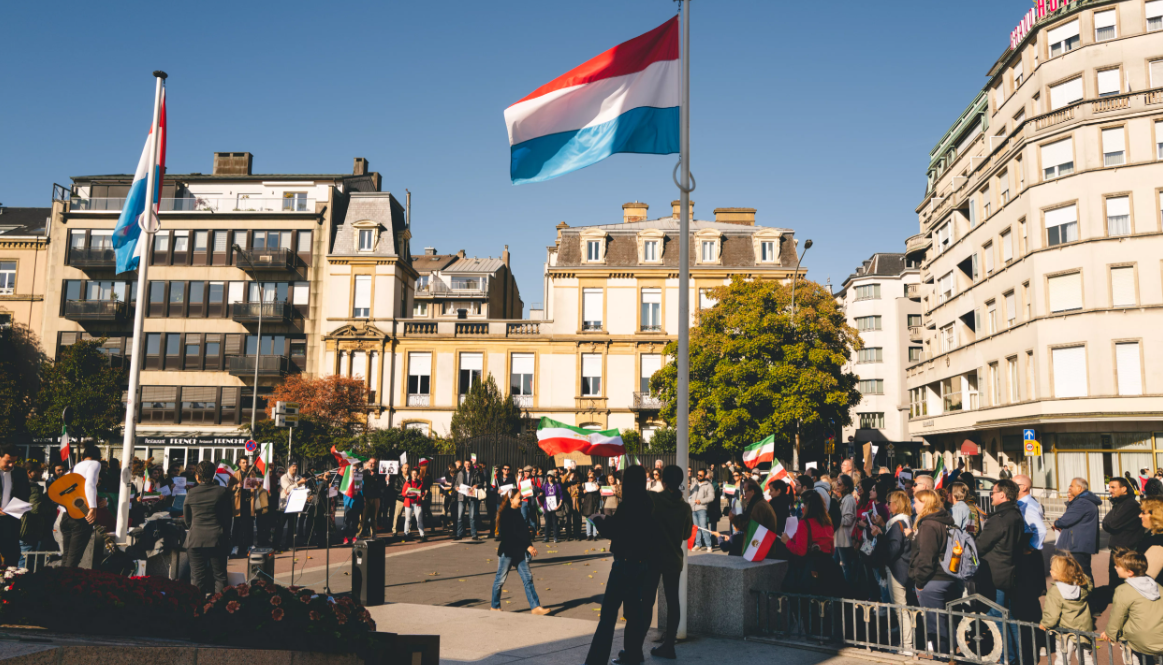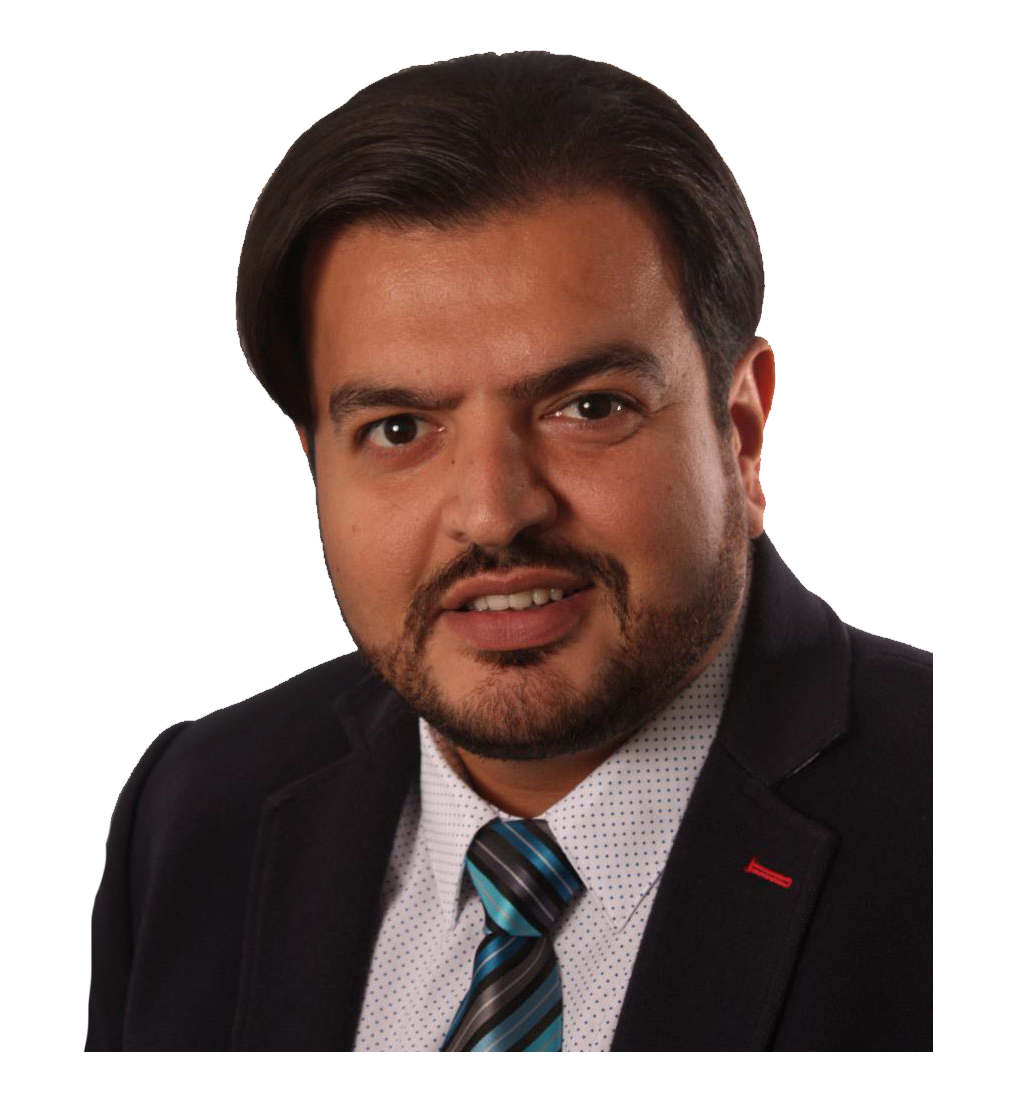Statement of Iranians in Luxembourg
Written by Ehsan Tari Nia to be read at the October 9, 2022 gathering and shared with Luxembourgish officials

Iran is currently experiencing a revolutionary atmosphere, evident in the widespread protests and slogans voiced by demonstrators. The people of Iran directly address Ali Khamenei, the despotic Supreme Leader of the Islamic Republic, as a dictator and are calling for his and the regime’s overthrow. Reflecting on the country’s rapid journey from one revolution to another, we can clearly see how Iran has shifted due to the misguided establishment of an Islamic government under Khamenei’s supreme rule. Over his 33-year autocratic rule, Khamenei and his inner circle have ruthlessly suppressed all political reform efforts, making political activism and any attempts at peaceful change utterly futile.
This dire situation includes economic devastation, a severe lack of social freedoms, environmental destruction, systemic corruption, escalating security and police presence, public impoverishment, media monopolization, brutal oppression of ethnic, religious, and cultural minorities, failure to meet even the basic demands of the diverse ethnicities within Iran, the militarization of the state, hostile regional policies, interference in neighboring countries, and exponentially increasing executions and imprisonments. All of these exemplify the leadership under Khamenei’s rule.
The ongoing protests, sparked by the state-sanctioned killing of Mahsa Amini, have evolved beyond this singular issue, as people demand systemic change. Some mistakenly reduce these protests to a matter of women’s rights and dress code. However, while the oppression of Iranian women is a major factor, it is the culmination of widespread grievances and the Islamic Republic’s inability to meet even minimal demands that has ignited this movement. The protest movement’s widespread participation, including that of veiled and unveiled women standing together, reveals that this uprising is not a call for lawlessness, but rather an assertion of individual and civil rights against the regime’s repressive claims.
As the people of Iran resist under oppressive internet restrictions—clear evidence of the Islamic Republic’s dictatorial nature—we Iranians abroad have a duty to amplify their voices to European officials. The Islamic Republic, which interferes in the personal lives, political affairs, and social positions of its citizens, is fully responsible for the Iranian people’s suffering. Participating in this revolutionary process means demanding sweeping change across all facets of society. Social activists and those with past grievances must actively contribute to this movement to avoid remaining passive observers.
Currently, the core dichotomy in Iran’s revolutionary climate is “continuing the status quo versus transforming it.” The fundamental political choice is between “dictatorship or democracy.” Without resolving these two core issues, no other demands can be addressed. In this revolutionary moment, one is either an agent of change or an object to be changed.
Every protest, execution, imprisonment, and exile of political activists over the past decades has been for the purpose of altering the status quo and achieving a better future. In the face of this accelerating transformation, silence is tantamount to consent, playing into the hands of Iran’s despotic regime.
However, the regime’s strength lies in the absence of an established and united opposition capable of mobilizing the people. In the absence of a cohesive opposition, Iran’s brave movements are repressed one after another, prolonging the regime’s slow death and inflicting greater suffering on the people. The focus here is on the Iranian opposition abroad. In Iran, any dissenting voice is either imprisoned, silenced, or at risk of death.
Four decades of Islamic rule in Iran and its deadly consequences confirm that this regime must end, and future governance in Iran must firmly exclude any religious or ideological interference. The Islamic Republic not only opposes Iran’s national interests but is also a serious threat to humanity, human rights, and global peace. Its 44 years in power and its track record demonstrate the need to terminate its existence, as each day prolongs the regime’s bloodstained legacy.
No one seeks to reform this regime anymore. The Iranian people demand the complete dissolution of the Islamic Republic and its replacement with a democratic and free government in which all Iranians, regardless of political, religious, cultural beliefs, or ethnicity, can live together with equal rights, contribute to Iran’s prosperity, and benefit from the rule of law.
Iranians abroad play a critical role in supporting the Iranian people’s struggle for freedom and democracy. Their participation in demonstrations, advocacy within their host countries, and outreach to global communities are crucial.
The global community’s support significantly strengthens the Iranian people’s movement for freedom, and the Iranian diaspora must continue to be actively involved.
The opposition abroad must recognize that their focus is not on internal Iranian power struggles but on overthrowing the Islamic Republic from afar. In the current climate, infighting among opposition groups is senseless and only benefits the regime. They must recognize that their common goal is to dismantle the Islamic Republic and establish a free and democratic government in Iran. To achieve this shared aim, political and ideological differences must be set aside, uniting forces for the greater purpose of Iran’s liberation.
Their political rivalry should begin only after Iran is free, with the formation of a National Assembly and democratic elections. For now, the duty of all opposition parties and active political figures is unity and mutual respect, pursuing the shared goal of a free Iran.
Our Demands as Iranian People and Iranians in Luxembourg from Luxembourg and EU Officials:
The Islamic Republic, a worn-out dictatorship, is not the choice of any Iranians, inside or outside the country.
Increased pressure from Luxembourg and the EU to intensify sanctions on all governmental, military, and non-military organizations of the Islamic Republic.
Signing the JCPOA and compromising with the Islamic Republic for energy security is tantamount to signing a document in ink mixed with the blood of Iranians and written with the bones of those who perished for freedom.
The Islamic Republic exploits regional instability to sell weapons and circumvent sanctions. This dictator’s meddling must be stopped.
We, the people of Iran, seek friendly diplomatic relations with the world. Countries like Israel, the U.S., and the U.K. are not enemies of our land or people; hostility is solely the desire of the current rulers of Iran, not its people.
The Islamic Republic in the region equates to an atomic bomb, a global threat.
The Islamic Republic’s friendship with a mad dictator like Vladimir Putin is a menace.
The Islamic Republic represents the threat of resurrecting an ISIS-like Islamic government in the Middle East.
We demand that Luxembourg, the EU, and the international community bring Mahsa Amini’s case and the cases of all murdered protesters to a neutral court.
In our country, a war similar to Russia’s invasion of Ukraine is underway, with the difference that Iranians are defenseless, while the suppressive forces attack protesters with war-grade ammunition.
The era of religious governments ended 600 years ago, but Iran is still governed as if it were 1,400 years ago.
Political critics and civil activists in Iran die in prison for expressing their opinions.
Religious and ethnic minorities are deprived of their most basic civil rights and suffer daily under the Islamic regime’s brutality.
LGBTQ individuals are denied even the fundamental right to control their own bodies, with recent court rulings in Iran declaring that being LGBTQ is punishable by death.
To be a woman in Iran means to be treated as a lesser being without the right to question or choose. In the Islamic Republic, being a woman means facing oppression from birth—being denied choice over clothing, marriage, or administrative actions without a father’s or husband’s permission.
Reinvestigation and scrutiny of cases involving agents of the Islamic Republic who live freely in Luxembourg under the guise of political asylum while attempting to prevent opposition unity.
Cut all trade relations with the Islamic Republic and exert full pressure on regime officials.
Establish a neutral tribunal to try Supreme Leader Ali Khamenei, President Ebrahim Raisi, and the government ministers for the crimes and executions committed during their 44 years of dictatorial rule.
Provide political and diplomatic support to protect protesters in Iran.
Written on October 7, 2022
Ehsan Tarinia – Luxembourg
